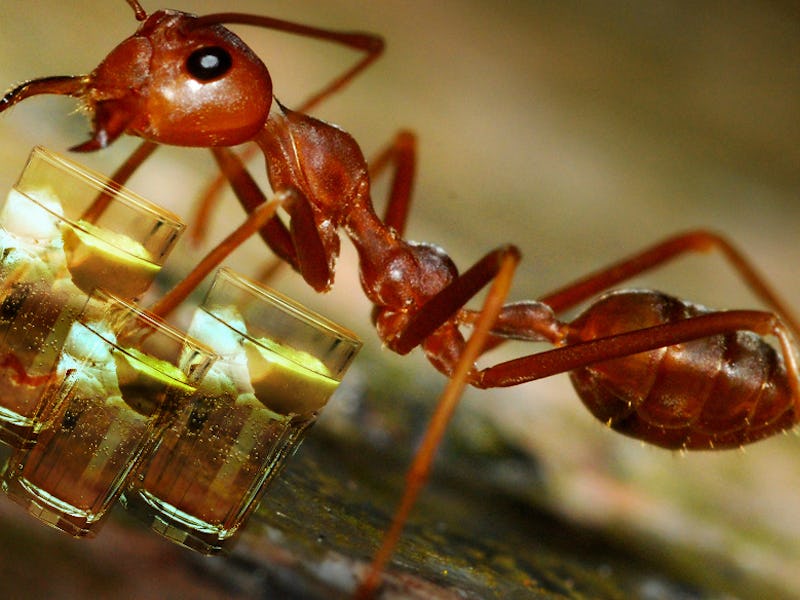Gin and tonic isn’t only the most refreshing strategy for malaria prevention; it’s also the premier way to sip on a little ant juice. From Copenhagen’s Nordic Food Lab and the London-based Cambridge Distillery comes Anty Gin, a liquor flavored with formic acid secreted by red wood ants.
Each bottle of Anty Gin has “the essence” of 62 wood ants. Essence, here, is referring to the formic acid that wood ants keep in their abdomens and spray at enemy invaders. Ants in the Formicinae family have a acidopore instead of a stinger, which allows it to shoot out acid from its venom gland. Highly aggressive and native to the northern hemisphere, wood ants have a spray that can reach up to a few feet. Getting a dose of formic acid through a wood ant bite can result in an angry, red, pea-sized blemish on your skin, but in tiny doses, it’s much more delicious than dangerous.
Formic acid supposedly gives Anty Gin a citrus-like flavor and creates a “aromatic ester” when it reacts to the chemical compounds in alcohol. The adventurous naturalist John Ray first extracted the acid from crushed ants in 1671, naming it formic acid after formica, the Latin word for ants. If you were dumb enough to munch on some wood ants, their inner stores of formic acid would have you commenting on its lemony aftertaste.
Wood ants shoot out formic acid.
The simplest of the carboxylic acids, formic acid is also naturally produced in stinging nettles and fruits like apples, strawberries, and apples. It’s also chemically produced by scientists to be used as antibacterial agent in livestock feed, to tan leather, and as a coagulant in rubber production. Doctors also use formic acid to treat warts.
And now you can drink it in your gin.
The folks at Cambridge Distillery also add “wild springtime botanicals” to each bottle, including wood avens, nettle, and alexanders seed. Every bottle also comes with a 50-milliliter bottle of “pure wood distillate,” so if you want to sprinkle the good stuff on everything, you can go right ahead.
